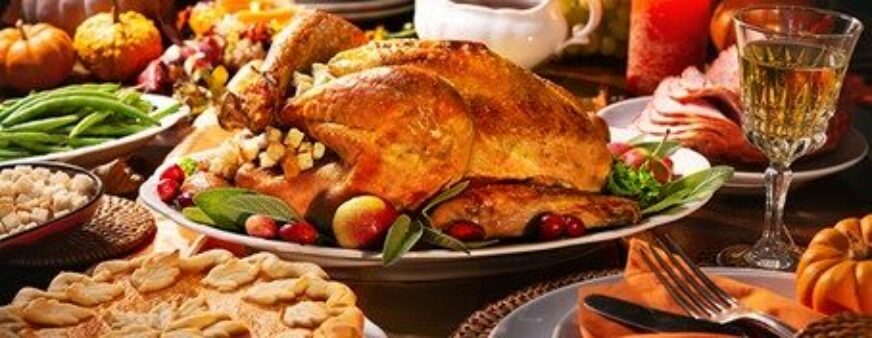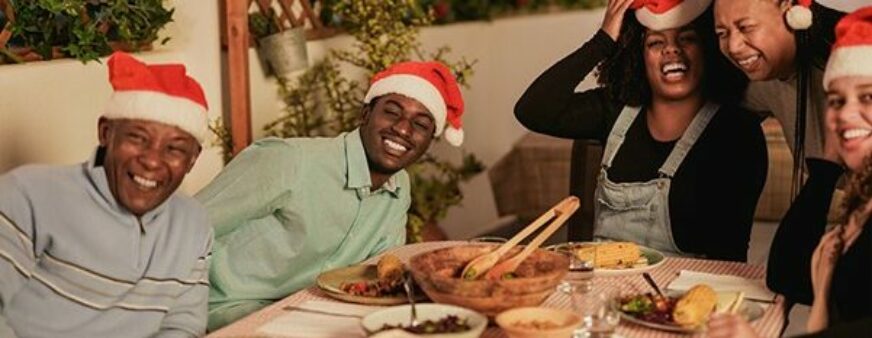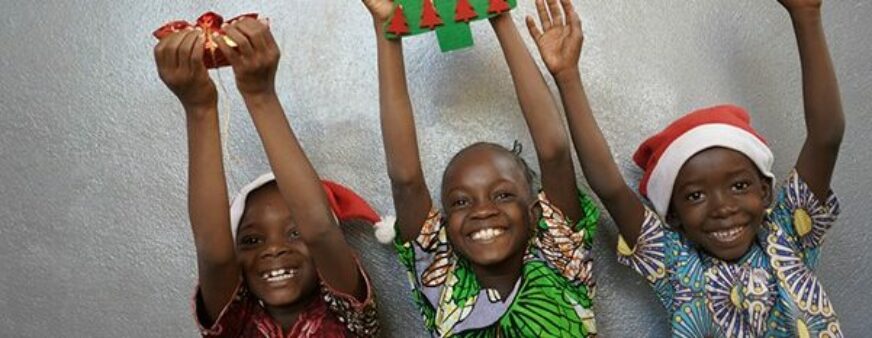Many consider Christmas their favourite time of year. The parties, the get-togethers, the food, and of course, the presents! Whilst the history of Christmas is rich and complex, it is considered by many that the Christmas celebration season originated as a celebration of the birth of Jesus Christ. Over the years, however, this holiday has developed, with new traditions added around the world, and as a result, the way that Christmas is celebrated now varies from country to country.
For those who live in the United Kingdom and Europe, Christmas is characterised by the winter season: cold, snow, and of course, the famous roast dinners. However, as you travel across the world, you begin to realise that this isn’t the reality for everyone, and in many areas of the globe – including Africa, Christmas is celebrated during the summer months. As a result, that traditional UK-style roast dinner couldn’t be further from the reality of Christmas in Africa.
Many will recall the Band Aid song “Do They Know It’s Christmas” as a reminder that Christmas in Africa is spent rather differently. Whilst African countries do know it is Christmas and celebrate the occasion, it’s less commercial with a modest tree and food with the focus very much being on giving and family. For those looking to travel over the holiday season, and perhaps for those lucky enough to experience Christmas in Africa, here at ARP Africa Travel, we’ve put together a handy guide to describe some of the key elements you may notice.


Starting with perhaps one of the most obvious differences when comparing traditions between the two countries, one of the key differences that shape how people celebrate Christmas in the UK and Africa is the weather.
In the United Kingdom and many other countries in the Northern Hemisphere, November and December are key winter months which are characterised by their plummeting temperatures, short, dark days and often snow. Whilst many are quick to complain about this season, as a result, the atmosphere is a very cosy and home-orientated one, with many people spending time indoors with their loved ones, enjoying festive cuisines and hot drinks such as hot chocolate, whilst by around the fire.
In contrast, November and December across Africa are some of the hottest months of the year, characterised by beautifully warm weather, blue skies, and perfect conditions for spending the celebrations outside. As a result, Christmas here is often much more relaxed, with many spending their holiday outside enjoying barbecues, beach days and community parties at communal outdoor spaces.
Another key difference between the Christmas traditional celebrations is the food. In the United Kingdom and beyond, food is a large focus of the day, with the majority of people preparing a large roast Turkey dinner for their families that includes a range of root vegetables, as well as extravagant and traditional desserts such as mince pies and Christmas Pudding.

Here we have the ongoing debate about the value Brussels sprouts to a meal and people trying to convince you that they are great with, “The way I cook them they are delicious.”

In Africa, Christmas meals are much more diverse than this and are largely shaped by the individual’s cultural heritage and Africa’s rich culinary history. Typically dishes such as jollof rice, plantains and stew-style meals are served, but this can vary, with many enjoying barbecues, too. The meat of choice is often goat, either roasted or stewed with lots of ugali, bananas and spinach. Roast turkey would only be seen in the homes of expats residing in Africa or touristic hotels along with an array of traditional dishes.
For those that have grown up around Christmas traditions, typical activities during late November and throughout December in the run-up to the holiday include carol singing and Christmas songs, various Christmas market visits and parties, as well as watching classic Christmas movies such as “The Grinch”, year-after-year. Children partake in yearly nativity productions at school, and adults participate in workplace traditions such as Secret Santa. Shopping pressures are seen across media channels in the weeks running up to the holiday, with a focus on buying the ‘perfect gift’.
On the other hand, in Africa, Christmas activities are much more focused on family and the values of the community. Families will often attend church services with their loved ones and the local community, whilst exchanging gifts such as food. Whilst attending these services, they will enjoy traditional dances and sing cultural songs – many of which are famous across the world. African Christmas traditional dances will differ from country to country, however, some of the most famous traditional dances that are popular during Christmas in Africa include:

With all of the differences identified thus far, it’s probably no surprise that the Christmas decorations of choice in Africa differ from those in other parts of the world. From the start of December – or, earlier in many cases – the majority of family homes will feature a sparkling Christmas tree or two, and perhaps glistening light and window decorations. On the other hand, a traditional African home will feature decorations at this time of year that are more reflective of local culture and heritage. A tree is still generally present, but it is much more modest and understated than the typical ones seen around the world.
One key example to reflect these decorations is the staple decoration often referred to as the “crib”. Whilst it is true that in many more religious households, nativity scenes can be found, those found in African households are much more reflective of the local culture, featuring clay-made decorations, traditional fabrics, and more traditional materials.
In addition, in Africa a number of the decorations are made from local, natural products and colourfully painted. Many children make their own decorations which forms a part of the excitement leading up to the big day.
When comparing African Christmas traditions, and those of the United Kingdom (or all over the world, for that matter), one thing is true: Christmas spirit is the same everywhere. Whether your Christmas experience is one characterised by snow or sun, the values are the same around the world, and this holiday is one that is celebrated with love, family, friends, and gratitude.
If you’re looking to experience some of the very best African Christmas traditions, or perhaps are even deciding on a trip to celebrate Christmas in Africa, please don’t hesitate to get in touch with our expert team here at ARP Africa Travel.
From safaris and game drives to expert tours, whether you want to visit Kenya or Tanzania or compare options for a once-in-a-lifetime multi-centre trip, contact our team today. However, be warned that many resorts sell out early for holiday bookings so planning well in advance is always recommended.
The team here at ARP Africa are passionate about our support of African charities throughout the year, but especially at Christmas. These range from supporting organisations that help get street children into skills that will provide them with a future, to wildlife conservation and assisting with sight saving eye surgery. If you would like to get involved with some of the charities we support, please contact us for details of how you can help.
